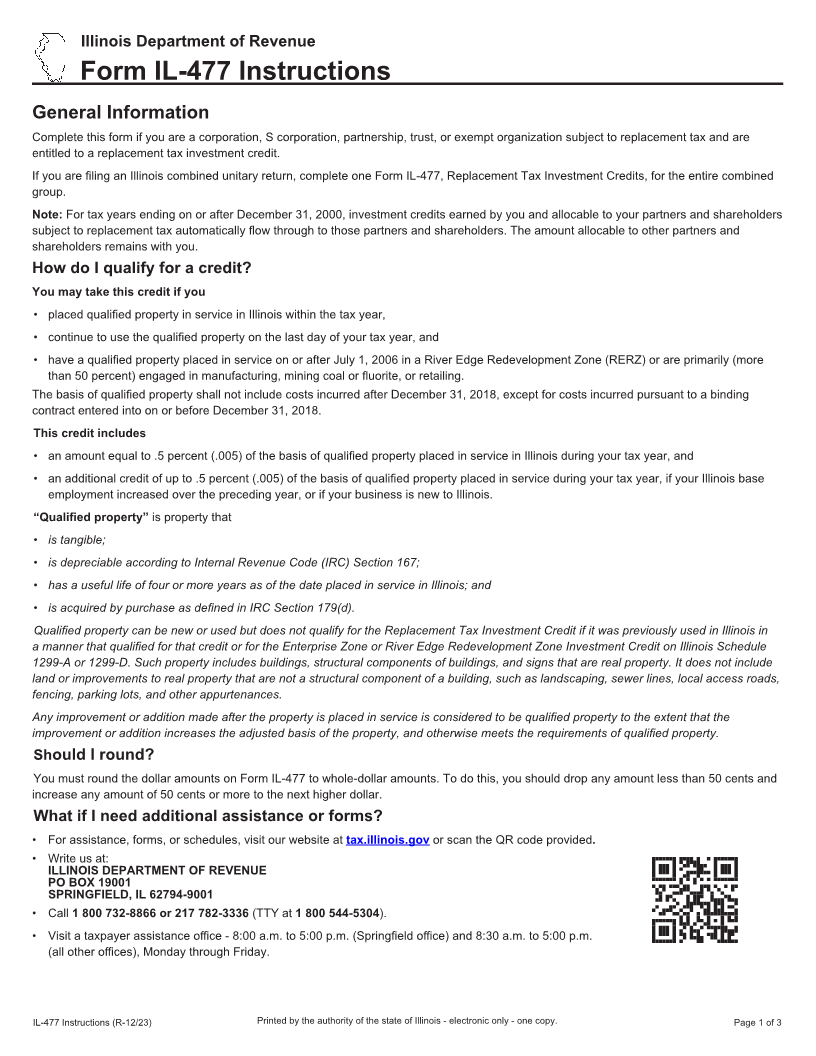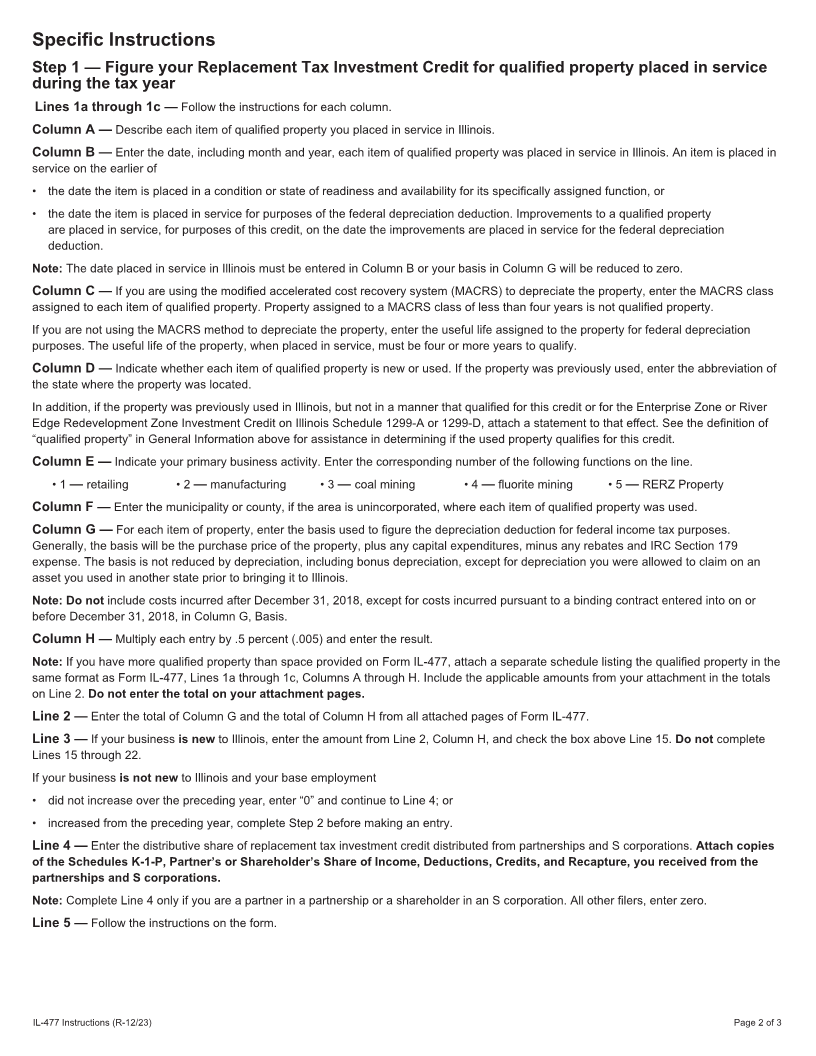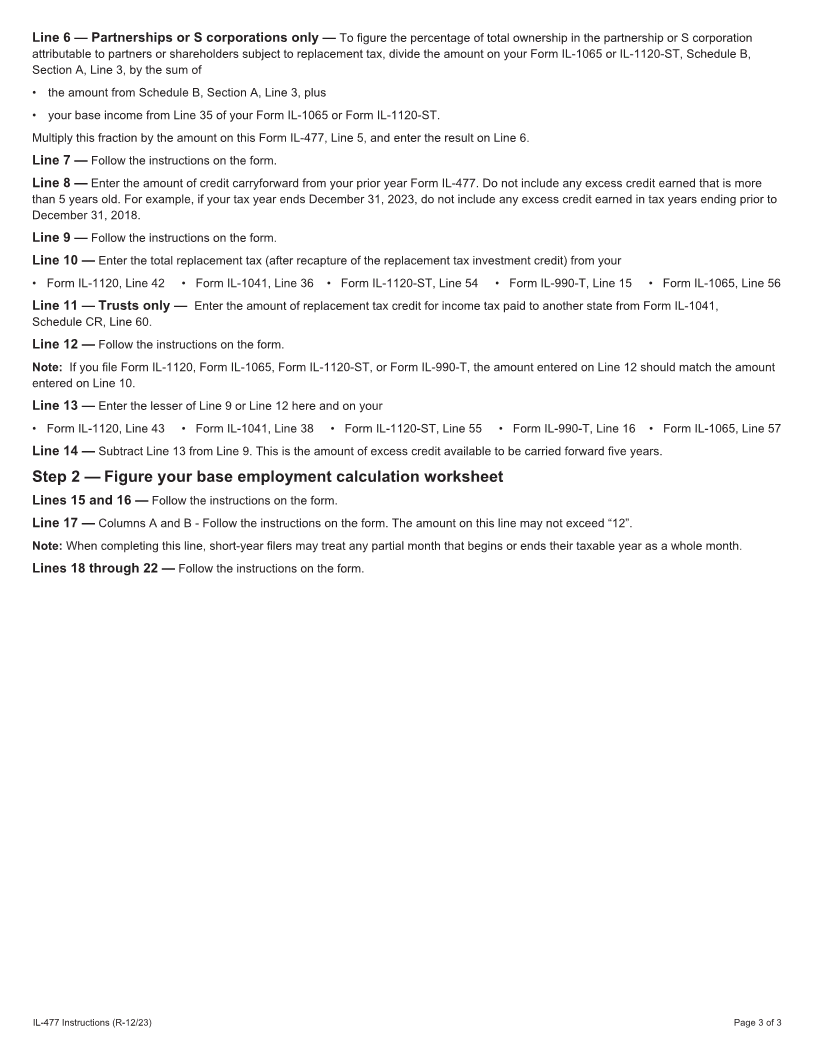
Enlarge image
Illinois Department of Revenue
Form IL-477 Instructions
General Information
Complete this form if you are a corporation, S corporation, partnership, trust, or exempt organization subject to replacement tax and are
entitled to a replacement tax investment credit.
If you are filing an Illinois combined unitary return, complete one Form IL-477, Replacement Tax Investment Credits, for the entire combined
group.
Note: For tax years ending on or after December 31, 2000, investment credits earned by you and allocable to your partners and shareholders
subject to replacement tax automatically flow through to those partners and shareholders. The amount allocable to other partners and
shareholders remains with you.
How do I qualify for a credit?
You may take this credit if you
• placed qualified property in service in Illinois within the tax year,
• continue to use the qualified property on the last day of your tax year, and
• have a qualified property placed in service on or after July 1, 2006 in a River Edge Redevelopment Zone (RERZ) or are primarily (more
than 50 percent) engaged in manufacturing, mining coal or fluorite, or retailing.
The basis of qualified property shall not include costs incurred after December 31, 2018, except for costs incurred pursuant to a binding
contract entered into on or before December 31, 2018.
This credit includes
• an amount equal to .5 percent (.005) of the basis of qualified property placed in service in Illinois during your tax year, and
• an additional credit of up to .5 percent (.005) of the basis of qualified property placed in service during your tax year, if your Illinois base
employment increased over the preceding year, or if your business is new to Illinois.
“Qualified property” is property that
• is tangible;
• is depreciable according to Internal Revenue Code (IRC) Section 167;
• has a useful life of four or more years as of the date placed in service in Illinois; and
• is acquired by purchase as defined in IRC Section 179(d).
Qualified property can be new or used but does not qualify for the Replacement Tax Investment Credit if it was previously used in Illinois in
a manner that qualified for that credit or for the Enterprise Zone or River Edge Redevelopment Zone Investment Credit on Illinois Schedule
1299-A or 1299-D. Such property includes buildings, structural components of buildings, and signs that are real property. It does not include
land or improvements to real property that are not a structural component of a building, such as landscaping, sewer lines, local access roads,
fencing, parking lots, and other appurtenances.
Any improvement or addition made after the property is placed in service is considered to be qualified property to the extent that the
improvement or addition increases the adjusted basis of the property, and otherwise meets the requirements of qualified property.
Should I round?
You must round the dollar amounts on Form IL-477 to whole-dollar amounts. To do this, you should drop any amount less than 50 cents and
increase any amount of 50 cents or more to the next higher dollar.
What if I need additional assistance or forms?
• For assistance, forms, or schedules, visit our website at tax.illinois.gov or scan the QR code provided.
• Write us at:
ILLINOIS DEPARTMENT OF REVENUE
PO BOX 19001
SPRINGFIELD, IL 62794-9001
• Call 1 800 732-8866 or 217 782-3336 (TTY at 1 800 544-5304).
• Visit a taxpayer assistance office - 8:00 a.m. to 5:00 p.m. (Springfield office) and 8:30 a.m. to 5:00 p.m.
(all other offices), Monday through Friday.
IL-477 Instructions (R-12/23) Printed by the authority of the state of Illinois - electronic only - one copy. Page 1 of 3

